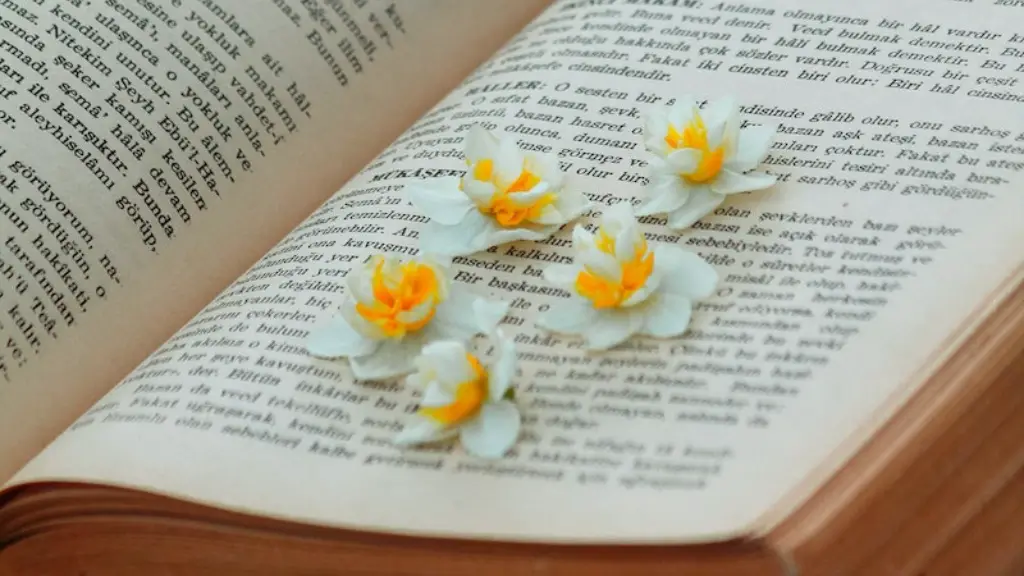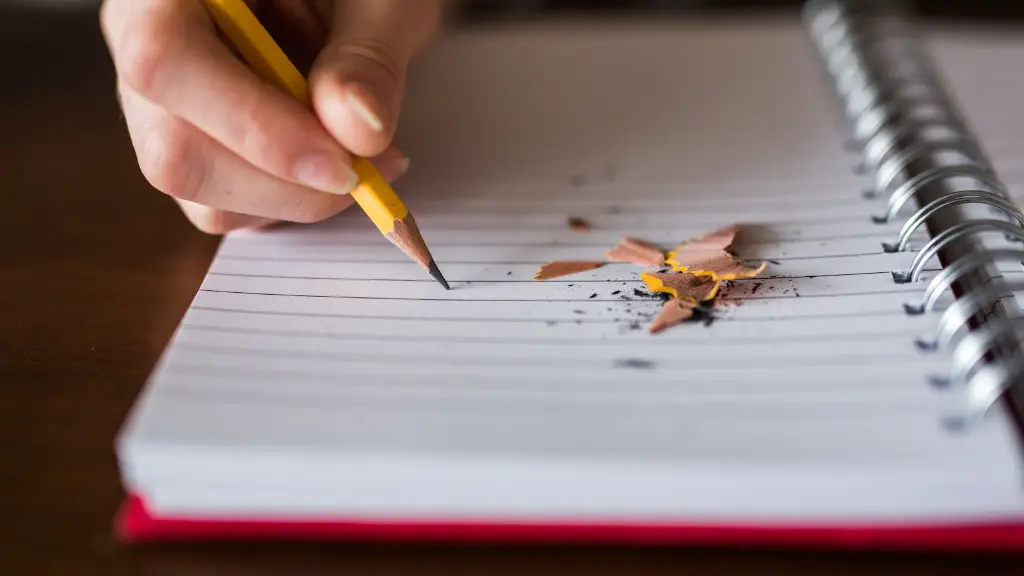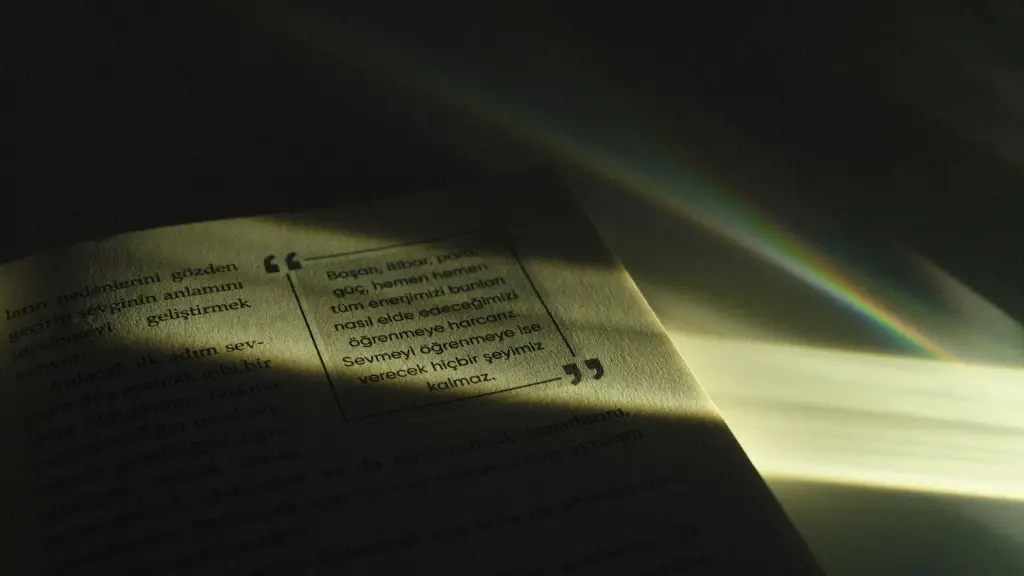Which of These Are Features of Epic Poetry?
Epic poetry is a form of poetry that is intended to tell a story, typically with a hero at the center of the story. This type of poetry is usually longer than other forms and can be written in various forms and styles. Here, we will explore some of the features of epic poetry.
One of the first features of epic poetry is its length. Epic poems are usually much longer than other forms of poetry, often hundreds of lines or more. Intricate stories require a lot of words and the scope of epic poetry is much larger than other forms.
Another feature is the use of elevated language. Epic poets often use certain forms and vocabulary that other poems may not, such as elevated and abstract language. This allows them to invoke strong emotions and feelings in the reader. They also often incorporate metaphors, similes, and other literary devices to help convey their message.
In a traditional epic poem, the narrative is presented through the eyes of a hero. This hero struggles against incredible odds and ultimately achieves their goal, by their own strength or with the help of some force. This is often seen as a metaphor for the struggles we all face in life, making the poem more impactful and meaningful.
A heroic character also contributes to the main point of epic poetry, which is often to provide some kind of moral lesson. It can be easy to moralize a story in a more direct way than other forms of poetry allow for. The narrative is often intended to instruct, guide the reader, or teach them something.
A final feature of epic poetry is that it usually contains supernatural elements, such as gods or supernatural creatures. This is often used to add more drama or excitement to the story. It also allows the poem to venture into different realms and caters to different types of readers.
Plot Structure
The plot structure of an epic poem is often complex and follows a certain format or arc. It typically begins with an invocation of the gods and sets the scene by introducing the characters and their situation. It then shifts to a series of travels and adventures, before ending with a resolution. This resolution can be of a dual nature, in which the hero obtains his goal but also suffers a tragedy or some kind of loss.
The plot structure often takes the form of a quest, which has the hero travelling across lands or through time to reach his goal. This type of structure provides a good framework for the character to go through a variety of trials that test him and give him insight into his journey. It is also a means of creating suspense and excitement for the reader.
There can also be a shift from a more realistic plot to a more spiritual plot. This can be seen in works such as Gilgamesh and the Odyssey, in which the character progresses from a more realistic understanding of the world to a greater knowledge and understanding. This type of structure can help to illustrate the character’s journey and the inner transformation they must undergo to reach their goal.
Literary Devices
Epic poetry is not only a narrative but also utilizes a variety of literary devices. These are used to help convey emotions, ideas and themes within the poem. Some of the most common devices include similes, metaphors, allusions, and repetition.
Similes are comparisons between two unlike things that use the words “like” or “as”. Metaphors are comparisons between two unlike things that do not use “like” or “as”. Allusions are references to events, people or writers from recorded history. Repetition can help to create a sense of structure or emphasis.
All these devices help to create an emotional response in the reader and can be used for a variety of purposes. For example, a metaphor may help to illustrate an abstract idea in a vivid way, or a repetition of a phrase may be used to draw attention to it. By using these devices, epic poets can convey their message more effectively.
Symbols
Similar to literary devices, symbols are often used to portray certain ideas or themes in an epic poem. A symbol is an object or figure that can represent an idea, emotion, or theme. It can be literal, such as a character or geographical location, or it can be figurative, such as a flower or a color.
Symbols can be used to represent various aspects of the story, from its setting to its more abstract ideas. For example, a river may symbolize a character’s journey, while a forest may represent a challenge they must overcome. They can also help to convey the emotions or messages of the poem in a more poetic way.
Epic Poetry in Modern Times
Today, epic poetry is still seen as a relevant and powerful medium for storytelling. While the form has been modernized in some ways, there are still some core elements that remain the same. The structure, devices, and characters are all still essential to the success of an epic poem.
Today, the genre is used to tell stories that are relevant to modern readers, from issues related to politics and society to those related to identity and personal struggles. Writers such as Chinua Achebe have employed these storytelling techniques to great effect with their novels and poems.
At the same time, however, there are some who argue that epic poetry is no longer relevant in today’s world. The often-lengthy poems do not always suit the attention-span of modern readers, and some of the more “old-fashioned” elements of the form are seen as outdated.
Nonetheless, epic poetry remains an important and powerful form of storytelling and is still capable of delivering an impactful and memorable story. Its ability to tell a story in an emotive and meaningful way is something that will always be in demand.
Conclusion
Epic poetry is a unique and powerful form of storytelling. It is characterized by several features, such as length, elevated language, heroic characters, moral lessons, and supernatural elements. It also makes use of important devices such as symbols and literary devices, and follows a certain structure. Epic poetry has remained relevant to this day, with many modern authors making use of its techniques.




